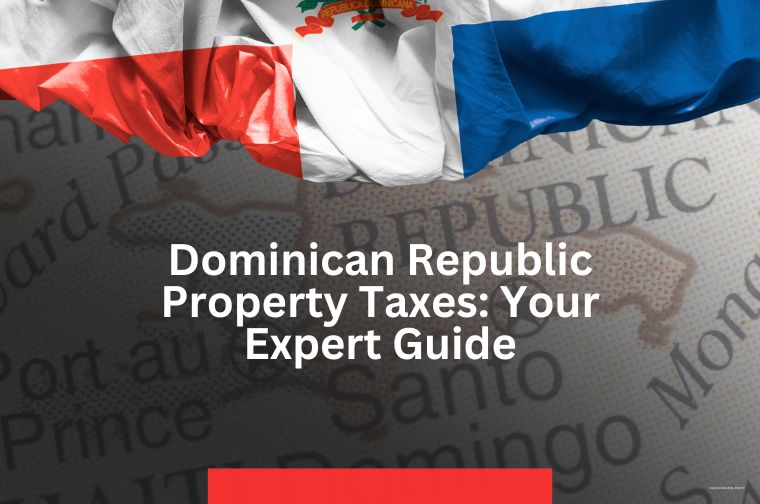Quick Read: In the Dominican Republic, the annual property tax applies to real estate assets exceeding RD$10.69M (about $170,000 USD) with a tax rate of 1% on the excess value for individuals; companies pay 1 % of the total owned assets. Payments are due semi-annually by March 11 and September 11. Seniors over 65 with one property as their primary residence and properties under certain exemptions like Confotur or agricultural use are not subject to this tax. Proper understanding and management of these obligations are crucial for property owners in the Dominican Republic.
Are you curious about property taxes in the Dominican Republic?
Let’s break it down in simple terms with our seasoned real estate attorney. In this easy-to-follow guide, we’ll explore the ins and outs, ensuring you understand the essentials.
What is the Real Estate Tax?
The Real Estate Tax locally known as “Impuesto Patrimonio Inmobiliario (IPI)” is an annual obligation applied to the total sum of taxed real estate assets owned by individuals as well as companies. This tax ensures that property owners contribute to the development and maintenance of local infrastructure and services.
Exemption Limits for 2026
For the year 2026, the exemption limit is set at RD$10,695,494 (approximately $170,000 USD). Properties with a combined assessed value below this threshold are not subject to the tax. This exemption offers relief to many homeowners and promotes real estate investments within this value range.
Example: For a property valued at USD $200,000 in the Dominican Republic, the owner would pay two semiannual property tax installments of $150 each in March and September, totaling $300 annually after the first $170,000 is exempted.
Explore properties valued below USD $170,000 here:
Who Pays This Tax?
Both individuals and companies that own property exceeding the exemption limit are required to pay the Real Estate Tax. For individuals, a 1% tax rate is applied only on the value exceeding the exemption limit. Companies, however, are taxed at a rate of 1% on the total value of taxed assets.
Learn more about the differences between Personal and Business Ownership here:
Payment Schedule
The tax is due in two semiannual installments. The first installment must be paid by March 11, and the second by September 11. It’s essential for property owners to adhere to these deadlines to avoid penalties and interest charges.
Special Considerations for Seniors and Other Exemptions
Seniors over 65 owning just one property used as their primary residence may apply for a tax exemption, enhancing affordability for retirees. Furthermore, properties under special regimes like Confotur (touristic development incentives), industrial land, or rural improvements for agricultural use, are also exempt. It’s important to note that the exemption applies collectively—if an individual owns multiple properties, the combined value is considered for tax purposes.
Read more about Confotur (Ley 158-01) here:
Properties Subject to Tax
All residential homes, urban plots, and properties designated for commercial, industrial, or professional activities are potentially taxable if their combined value exceeds the exemption limit.
Submission and Payment
Property owners must submit the Real Estate Property Tax Affidavit (IPI) within the first 60 days of the year and ensure payments are made according to the installment schedule.
Why This Matters
Understanding these details is vital for anyone owning or considering purchasing property in the Dominican Republic. Proper planning and awareness can lead to significant savings and compliance with local tax laws, which is essential for sustainable investment.
For more detailed guidance and personalized advice, consider consulting with professional real estate agents committed to excellence, such as those at RealtorDR, who are well-versed in the nuances of Dominican Republic property taxes and can provide tailored assistance.




